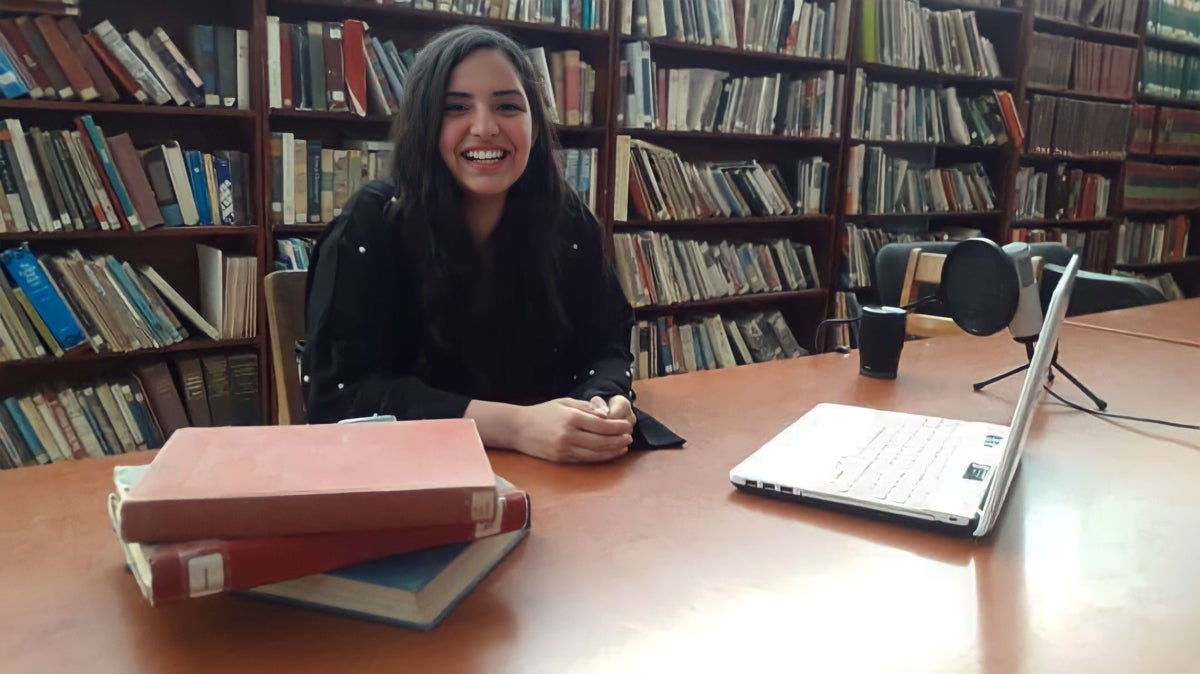Take five “To find sustainable solutions for the climate crisis, it is critical to recognize the important contributions of women”
Date:

Anisa Bek Derna, also known as Nissa Bek, is a 24-year-old media personality and climate advocate, founder of Project Mulan, a youth-led initiative that aims to spread awareness and support the achievement of the UN Sustainable Development Goals (SDGs) in Libya.
In addition, she’s the national leader of youth environmental organizations “Let’s Do it” and “Fridays for future in Libya”. With over 9 years as an environmental advocate, Nissa has accumulated many honors and awards, including the prestigious Diana Award, inspired by Princess Diana of Wales. Recently, she was recognized by Greenpeace as one of 10 African Climate activists Changing the face of the planet.
When did you first decide to work against climate change?
When I was 8 years old, I developed an interest in nature and biodiversity conservation through watching Discovery Kids. I wanted to study environmental sciences like my heroes and waited for the opportunity to arise. I was 14 years old when I started taking environmental sciences in high school. The course was an eye-opening experience about what’s happening in our world and that is when I realized that as a human being I am only one small part of a world filled with ecosystems and organisms that are actively working to keep the world going and that in fact I was not doing my part. Instead, I was unknowingly interrupting the harmony of this world through my daily activities. That was my wake-up call.
I slowly started learning more about environmental science, biology, ecology and climate change. In college, I wanted to share this knowledge that I have gained with others by launching Project Mulan and started giving workshops and training to young people of different ages to inspire them to work together to combat the climate crisis.
How can young women be part of the solution and mitigation strategies for climate change?
Women are the most affected by extreme environmental events. They tend to face the highest risks due to their socio-economic status. At the same time, due to all these issues, women have a good understanding of what is needed to adapt to climate change.
Women remain a largely untapped resource because of existing biases and lack of access to proper education and financial resources. I have read somewhere that if women had fair opportunities in the job market like their male counterparts, 26% could be added to global annual GDP by 2025. This is more than enough to bridge the climate finance gap needed to fund the battle against climate change. Therefore, for practical and effective climate change mitigation, we must unleash the knowledge and capability of women. To find sustainable solutions for the climate crisis, it is critical to recognize the important contributions of women as decision makers, experts and educators across all sectors.
What would it take to get everybody’s attention on this issue?
From my observation, climate change is an abstract problem for most people. It is something that is happening far away in remote areas such as the Pacific Islands or the Arctic. Others believe that it’s something that won’t happen until the distant future. People naturally underestimate distant problems, or problems that haven’t affected them and their immediate social circle. Thus, instead of talking about climate change’s global effects, we should highlight the effects faced at the local level. Media should build on those local stories, such as changes in the geographical distribution of food- and current health effects, like water-borne illnesses or asthma that’s already a result of air pollution. I think that is a better strategy to get the attention of people.
What is the role of youth in fighting climate change?
Young people are more connected with each other and our planet than at any other point in history. We are aware of the consequences of the climate crisis and that our unity and collective work is essential to save our future and humanity from extinction. What is needed now is for policymakers to realize this as well.
Youth voices remain unheard at the local and national policymaking, so we must use the climate crisis which affects us and our future the most as an entry point to bring young people into the conversation. People who hold the power today need to understand our desire to create the future we want. Therefore, we must rely on each other’s knowledge, new ideas and innovation to bring ourselves to the decision-making table.
What advice would you give other young women who want to contribute to climate action?
We call Planet earth “mother nature” for a reason. The attributes of our planet are like that of a woman. I believe that women and nature share a strong connection in many ways. And for that reason, I believe that we, women, have the power to protect our earth best. I want all women to think of that connection when they take on climate activism, this will give them the confidence to carry on and feel the positive effect of their actions no matter how small it may seem.
For women who want to contribute to climate response, I say learn about science, technology and art. It’s only through knowledge you’ll be able to secure your position at the decision-making table. Start now, in whatever capacity and with whatever kind of knowledge you already possess. One form of contribution can be as simple as highlighting and amplifying the work led by other women. This is essential to build communities where women are encouraged to contribute and feel that their contribution to climate justice is equally important as everyone else’s.